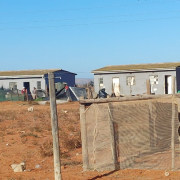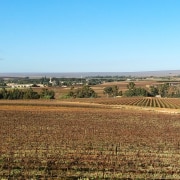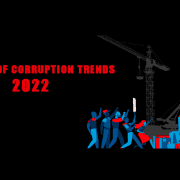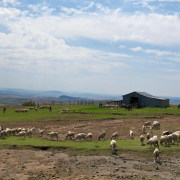|
Getting your Trinity Audio player ready...
|
By Melusi Ncala
First published in the Sunday Tribune
I often puzzle over the hesitant behaviour of people around me when they discuss the topic of land dispossession and the displacement of families and communities.
It is as though there is a collective disposition of awkwardness and clumsiness. Land and related issues are described as “touchy” or there is a subtle othering of those who are adversely affected as “being emotional”. We all should be familiar with these complicating tactics because they are often used against daring, strong and assertive women who articulate and confront matters that societies are otherwise fearful or reluctant to address.
Nevertheless, it is these euphemisms and others that most of us resort to when we should be using more appropriate, more honest descriptors such as “painful”, “angry” and “problematic” to talk about land corruption – the abuse of entrusted power for private gain in the administration and management of land governance – and the ensuing displacement and dispossession. That is how injustice must be rationalised. How else do we expect to begin to right a wrong marked by persecution, violence and corruption?
My team and I recently visited communities in eThekwini, Kwazulu-Natal, as part of Corruption Watch’s involvement in the Land Corruption in Africa project by Transparency International. People voiced their frustrations at being left landless, homeless and exposed to polluted environments. They have been impoverished, abused and neglected by elected and employed government officials, traditional leaders, and corporations.
They are disillusioned and angry.
These are some of the dire consequences of land corruption. We heard frequently that to obtain a government-sponsored house or a piece of land from a tribal authority, a person is supposed to pay a bribe. But even that might be a temporary arrangement; the person could be removed under dubious circumstances like the decision to rezone an area or allegations of bad behaviour.
Exacerbating these cruel circumstances, sinister political dealings enable businesses to acquire large portions of land and invade residential areas for profit at the expense of people’s peace, the sanctity of their lives, and their freedom. The community members’ discussions were punctuated with bitter comments of “no one cares” and “businesses do what they like because they are protected by politicians”.
Corruption Watch has more than 700 cases of corruption involving land and related issues. Some are about sextortion. Others describe officials who give preferential treatment to friends and family or solicit bribes from applicants, or who rent out or sell houses meant for poor and working-class people. These cases are among 20% of our reports alleging irregularities in awarding public housing.
Furthermore, there are claims of embezzlement of funds and theft of resources; 25% of corruption cases give an account of officials working alongside businesses to siphon public money intended for land development. All of these purported acts of corruption and criminality go hand-in-hand with over 11% of reports of bribery and 9% of reports of procurement irregularities.
It is a sad state of affairs, but as much as there are people who are increasingly feeling despondent because of the status quo, there are those ready to soldier on and to live to fight another day. These are the people who acknowledge that the land question is one that is historically and principally steeped in corruption, both morally and legally.
These people are unwilling to yield to the might of the corrupt. Their will to express their hurt and to confidently blow the whistle on corruption is a testament to their unwavering spirit.
● Corruption Watch launched the Land Corruption in Africa report, titled Unearthing corruption in the land sector, at St Paul’s Church in Durban on 2 December.







